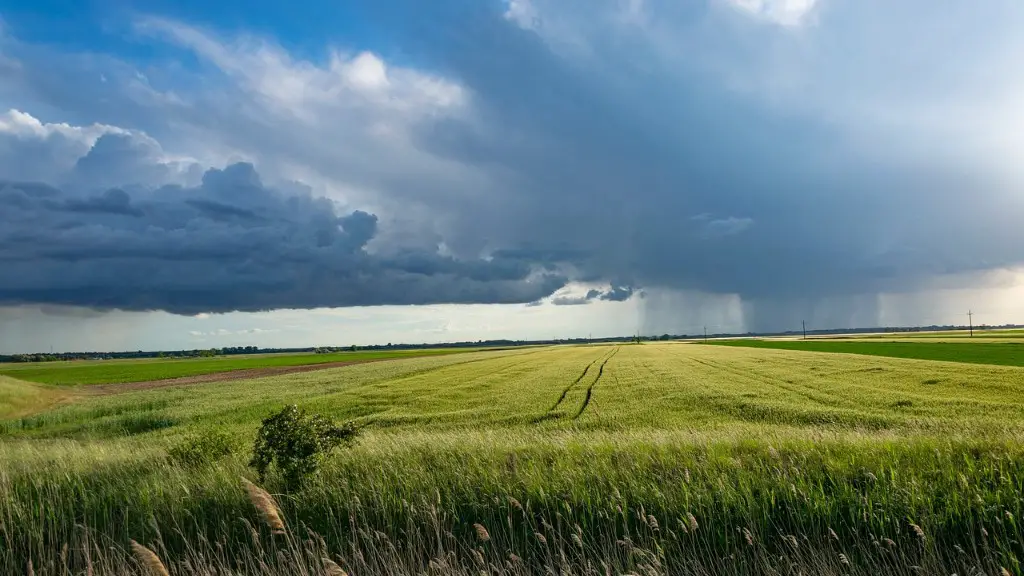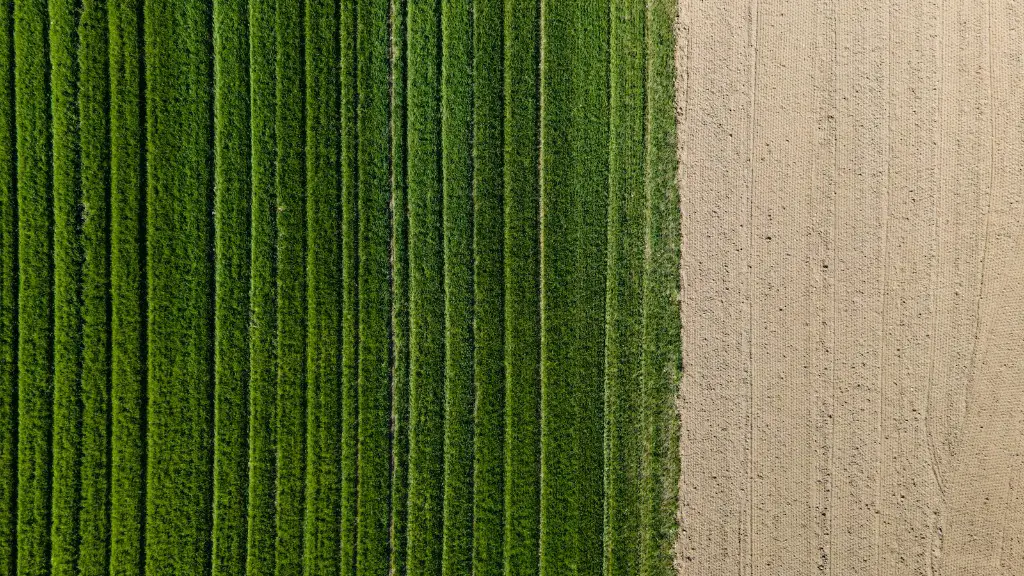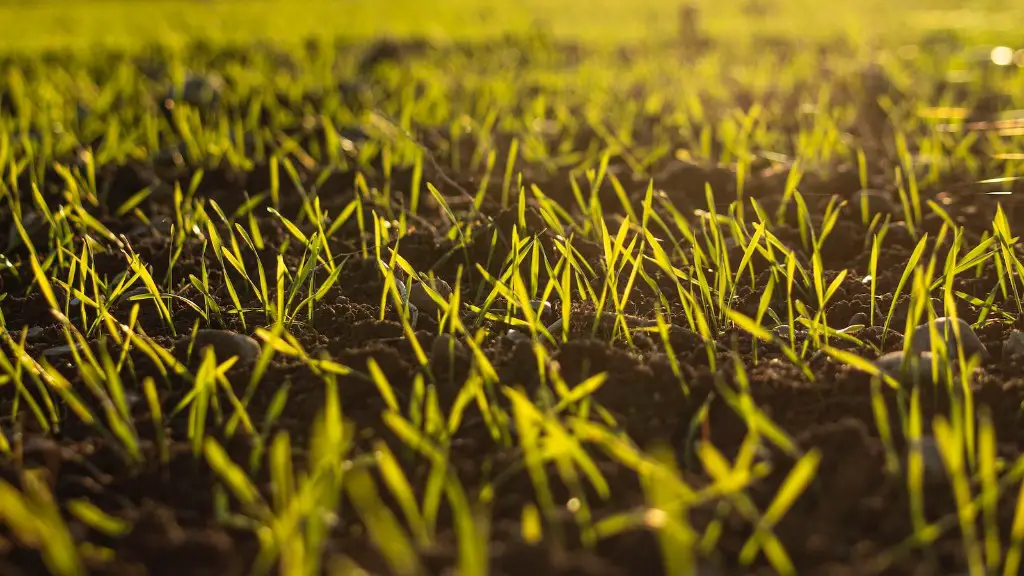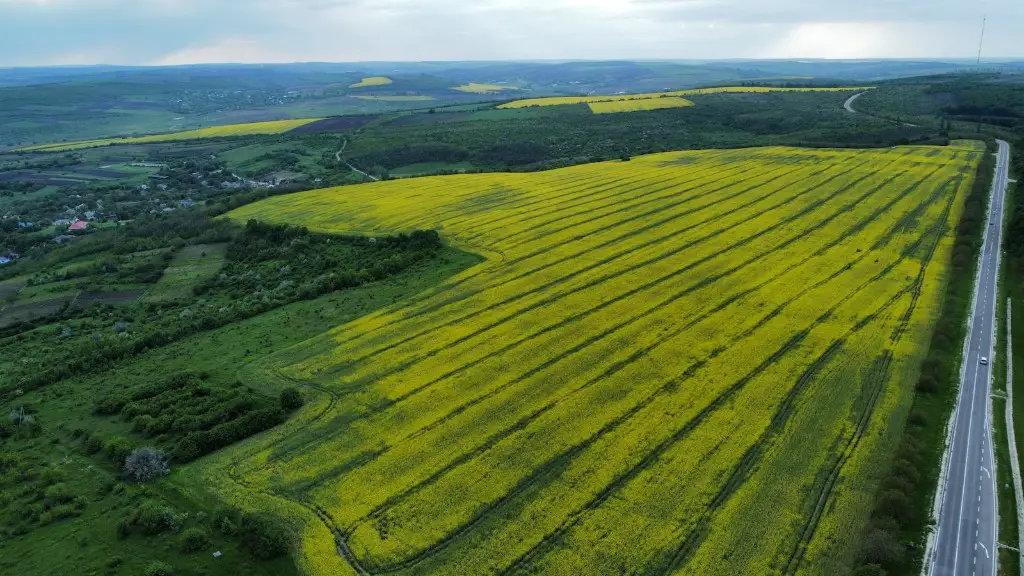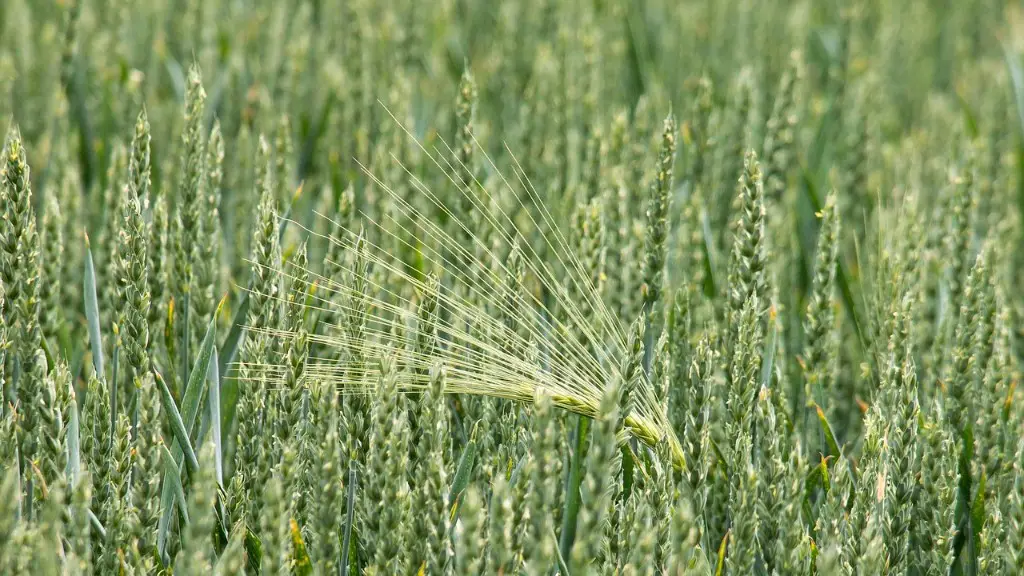No, agriculture is not inherently bad for the environment. However, the way that society has come to produce and consume food has put strain on the environment. The modern agricultural system is very resource intensive, and it often takes more from the environment than it gives back. This can lead to environmental degradation, particularly in the form of soil erosion, water pollution, and climate change.
There is no clear answer to this question as the impact of agriculture on the environment can be both positive and negative. On the one hand, agriculture can lead to deforestation and the loss of biodiversity, as well as increasing greenhouse gas emissions. On the other hand, sustainable agriculture practices can help to conserve natural resources, improve soil health, and reduce pollution. Ultimately, the impact of agriculture on the environment depends on the specific practices used.
What are the negative effects of agriculture on the environment?
Large-scale, conventional farming is not sustainable in the long term. It contributes to climate change, pollutes air and water, and depletes soil fertility. We need to move to more sustainable methods of farming that focus on diversification, conservation, and the use of renewable resources.
Many environmental issues affect farmers’ profits and productivity in any given season. Poor soil quality, for example, can lead to lower yields, while poor water quality can make it difficult or impossible to irrigate crops. Climate change can also cause extreme weather conditions that damage crops or make it difficult to grow them. And finally, terrain can impact farming by making it difficult to access certain areas or by causing soil erosion.
What is the biggest problem in agriculture
Loss of agricultural land is a huge problem facing farmers today. Erosion from wind and water can wash away topsoil, making it difficult to grow crops. Additionally, development and urbanization are eating up farmland, leaving less and less land available for agriculture. This is a major problem, as it decreases the amount of food that can be grown, and also decreases the genetic diversity of crops. This lack of diversity makes crops more susceptible to disease and pests, and can lead to devastating losses.
Agricultural land is being lost at an alarming rate. According to the United Nations, the world is losing 24 billion acres of arable land each year. This is largely due to urbanization and the conversion of land to other uses.
The loss of agricultural land results in a decrease in the variety of crops and livestock produced. This is because each type of crop or livestock requires specific conditions to thrive. When agricultural land is lost, the conditions for producing certain crops and livestock are no longer met, and the variety of these products decreases.
The loss of agricultural land and the decrease in the variety of crops and livestock produced are two of the most major problems facing agriculture today. These problems are interconnected and must be addressed together in order to ensure the future of agriculture.
Does farming help or add to global warming?
Agriculture is a major contributor to climate change. Farming releases significant amounts of methane and nitrous oxide, two powerful greenhouse gases. At every stage, food provisioning releases greenhouse gases into the atmosphere.
Agriculture accounts for a significant portion of global greenhouse gas emissions. In fact, agriculture, forestry, and other land use activities are responsible for about 24% of global greenhouse gas emissions.
Farming practices, like livestock husbandry and rice cultivation, are among the largest sources of methane emissions. Methane is a powerful greenhouse gas, and its emissions from agriculture have increased by about 11% since 1990.
Nitrous oxide emissions from agriculture have also increased significantly, by about 20% since 1990. Nitrous oxide is another powerful greenhouse gas, and its emissions come from activities like fertilizer use and livestock manure management.
The agriculture sector has a significant impact on climate change, and it is important for farmers to be aware of the ways they can contribute to reducing greenhouse gas emissions. There are a number of practices that can help reduce emissions, like using more efficient irrigation systems, planting trees, and using cover crops.
If farmers stop cultivation, it will have a devastating impact on the food supply. Crops like wheat, rice, and maize are essential for human and animal survival, and without them, starvation would become a very real possibility. In addition to the loss of food, farmers also provide other important services like soil conservation and water management. If they were to stop working, it would further degrade the environment and make it even more difficult to support life.
What are 3 effects of agriculture?
While the development of agriculture in a region can bring many positive effects, it can also lead to some negative consequences for the environment. Inorganic nitrate pollution, pesticide pollution, and salinity problems can all be caused by agriculture, especially in regions where it is practiced intensively.
Farming allowed for the domestication of plants and animals, which led to the accumulation of food surpluses. This, in turn, led to the formation of deep class divisions between those who had access to these surpluses and those who did not. Hunter-gatherers, by contrast, have little or no stored food and no concentrated food sources, like an orchard or a herd of cows. They live off the wild plants and animals they obtain each day. As a result, they tend to have much more egalitarian societies, without the sharp class divisions that farming helped create.
Why youth are not interested in agriculture
The lack of interest in farming among youths is a cause for concern. Agriculture is a vital sector of the economy and its importance cannot be understated. It is therefore imperative that measures are taken to encourage youths to take up farming. One way of doing this is by changing the perception of farming among youths. This can be done by educating them on the modern methods of farming and showing them how it can be a profitable venture. Another way of encouraging youths to take up farming is by providing them with financial incentives. This could involve giving them tax breaks or subsidies. Whatever the approach, it is important that action is taken to encourage youths to enter into the farming sector.
Farmers and ranchers can contribute to reducing greenhouse gases in the atmosphere through changes in production practices or land use that increase the amount of carbon stored in soils or vegetation. These management practices are commonly referred to as carbon sequestration. Carbon sequestration has the potential to remove carbon dioxide from the atmosphere and store it in terrestrial ecosystems, thereby offsetting some of the greenhouse gas emissions that contribute to climate change.
Is agriculture for the poor?
The agriculture sector is crucial for both economic growth and poverty reduction. It is estimated that growth in the agriculture sector is two to four times more effective in raising incomes among the poorest compared to other sectors. In least developed countries, agriculture can account for more than 25% of GDP. Therefore, it is important to invest in the sector in order to create jobs and reduce poverty.
Urban sprawl has significantly decreased the amount of agricultural land available for food production. This is due to the increasing amount of land being used for commercial, residential, and industrial development. While urban development has mostly converted cropland to other uses, low-density residential development has had an equal impact on both cropland and pastures. This has led to a decrease in the amount of land available for agriculture, which could have a significant impact on food production in the future.
Who are the biggest contributors to climate change
Fossil fuels are the main driver of climate change, accounting for over 75 percent of global greenhouse gas emissions. Burning fossil fuels releases greenhouse gases into the atmosphere, which trap heat from the sun. This trapped heat makes the Earth’s atmosphere warm, and disturbs the Earth’s climate. Over the years, the burning of fossil fuels has caused the Earth’s atmosphere to warm by about 1.5 degrees Fahrenheit. If we don’t dramatically reduce our use of fossil fuels, this warming will continue and intensify, causing even more drastic changes to our climate.
It’s great to see that more and more farmers are believing in climate change and its effects on their crops. This shift is likely due to the increasing number of extreme weather events that farmers are experiencing, which are likely linked to climate change. It’s important that farmers are adaptable and able to change their practices to adapt to a changing climate, in order to ensure the continued success of their operations.
How does agriculture lead to global warming?
Agriculture has been a major driver of deforestation and land use change for centuries. Forests are cleared to create farmland, and this often results in a net loss of carbon dioxide (CO2) storage. This is because forests are natural ecosystems that take up and store CO2 from the atmosphere, while farmland does not. As a result, agricultural expansion is a major contributor to climate change.
One reason the government pays farmers not to grow crops is because it is cheaper than providing agricultural price supports. Price supports require the government to buy crops from farmers when prices are low, which can be costly. Additionally, paying farmers not to grow crops can help to avoid surpluses, which can drive down prices and harm farmers.
Conclusion
No, agriculture is not bad for the environment. Agriculture can have a negative impact on the environment if it is not managed properly, but it can also have a positive impact if it is managed sustainably.
No, agriculture is not bad for the environment. Agriculture is a vital part of the global food system and helps to provide food and other products for people all over the world. While there are some negative impacts of agriculture on the environment, such as pollution and soil erosion, there are also many positive impacts, such as carbon sequestration and water purification. overall, agriculture is essential for the environment and the people that depend on it.
